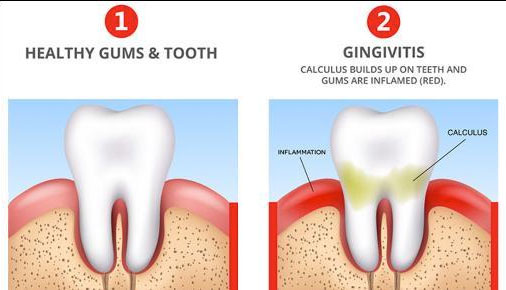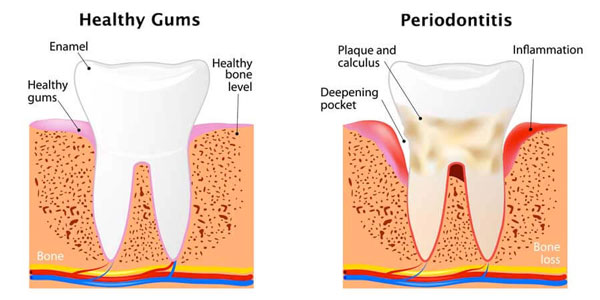Periodontal diseases are mainly of two types:
Gingivitis is caused by inadequate tooth cleaning and retention of dental plaque around marginal gingiva for an extended period of time. As a result, the microorganisms become more complex and initiate the process of gingival inflammation.
Brushing and flossing (interdental brushing) removes plaque adequately and resolve the situation.
Dental prophylaxis by a professional dentist or hygienist also significantly improves this situation.

Periodontitis is an inflammatory condition that affects underlying support of teeth. Periodontitis weakens tooth support; in advanced stages, it leads to tooth mobility. If not treated adequately in a timely manner followed by regular maintenance, periodontitis may be a principle cause of tooth loss.

Periodontitis is a multifactorial disease with interplay of plaque, multiple genes, and risk factors.
Role of Plaque:
The Primary Cause of gum disease is plaque, which is a biofilm. Plaque, being a biofilm, is a community of bacteria helping each other for the survival of the “community” against external factors like host inflammatory response, antibiotics, antiseptics (mouthwashes), etc.
Role of Genetics:
Genetics is a central factor with studies showing genetics making up to 82% (average 50%) contribution towards periodontal disease is governing inflammatory response of body. Periodontitis is a mixed genetic disease due to interaction of multiple genes so not allowing a simple genetic test.
Other Risk Factors: